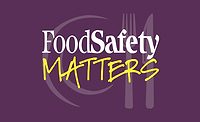Ep. 92. Chirag Bhatt: A Career along the Supply Chain

Chirag Bhatt has been involved in food safety for 4 decades. After working with the local regulatory agency in the city of Houston for over 26 years. Chirag joined Bloomin’ Brands as their Global Regulatory Compliance Manager. Then Sysco Corp as Regulatory and Technical Services Director. And most recently with retailer Buc-ee’s, as a Director of Food Safety and QA before starting his own food safety consulting company.
He has served as Chair for the National Restaurant Associations Quality Assurance executive study group. And currently serves as an Education Advisory Board member with Food Safety Summit and is an advisory council member with Sani Professional. Chirag holds a Bachelor of Science in Biology and Chemistry.
Subscribe on Apple Podcasts | Stitcher | Google Play | Android
For access to more podcast episodes, click here.
In this episode of Food Safety Matters, we speak to Chirag [14:40] about:
- The interconnectedness of the food supply chain
- Inspection challenges at a local level
- Food Code compliance
- Effects of COVID on the distribution chain
- Supply chain vulnerabilities
- Meal and food delivery
- The effects of local culture on food safety
- The interface between consumers and foodservice/retail
- Trying to be proactive rather than reactive
- Consumer messaging
- Current food safety trends
Resources
First Quarter of 2021 Brings Only Two Multistate Foodborne Illness Outbreaks (1:00)
AFDO Resources for Reopening Restaurants (3:58)
Advice on Preventing Mislabeling (7:11)
We had a letter from a listener about label related recalls who wrote:
“At my company we have separate rooms for our products and even have a separate facility for peanut butter to ensure there’s no cross contamination and for allergen control. We keep labels for those specific products in each room and QA audits them monthly to make sure they didn’t get mixed up.
We have caught some product mislabeled in the middle of a run recently. We got lucky that we caught it before we finished the run so we could correct it, but this still prompts an investigation and a corrective action. What do most companies do to avoid mislabeling product? Do they have lockers in the rooms themselves or elsewhere?”
Food Safety Magazine’s Editorial Director Barbara VanRenterghem reached out to one of her contacts at Conagra who responded:
“In general, we store all labels completely separate from the production lines (in completely different areas of the plant) and only bring those labels to the line (or even into the production room) that are for the specific product being made at that time. The pre-production checklist requires a member of our team to verify that the label on the line matches that for the product being run. We then remove a label from each roll or packet of labels and affix it to the production paperwork. This paperwork is reviewed and signed off by a supervisor before the product is released to trade.
Whenever we do a product changeover for the line, we require that all labels are removed from the line area or entire room prior to any new labels being brought to the line or into the room. This helps to ensure that the pre-production checklist verifies all labels brought into the room for each run. It is a violation of our internal policies for more than one batch of labels to be at a production line at any one time.
One of the best ways to confirm label accuracy occurs on those lines where we have bar code readers on the lines themselves. We are moving toward as much automation as possible in all aspects of our business and label control and verification is a great example of how automation can help. Of course, this requires that the programming be accurate in our production software!
Finally, the ultimate verification process is with the individual people running the lines. In companies with a good food safety culture, every line worker feels it is their duty to help confirm that the right product is in the right container with the right label and all of our food safety and quality parameters have been followed.
I know that your listener probably knows all of this and it sounds like they are doing a great job. In any system, no matter how good it seems, mistakes can and do happen. It always comes down to following your procedures and having well trained people on the lines that care about what they are making. Not sure if this helps much but willing to answer any specific questions.”
Register now for our webinar Global Food Safety Series: Australia. Featuring Lone Jespersen, Ph.D., Cultivate, Rachel Downey, Bulla Dairy Foods, and Diana Pregonero, 3M Food Safety. This is part two of our five-part series. Part one examined Europe, parts three to five Asia, North America, and Latin America.
Registration is open for the Food Safety Summit, coming to a computer near you, May 11-13. This year’s theme highlights Food Safety Lessons Learned from the Global Pandemic and so much more. Our best-in-class virtual experience has now added a video chat feature so we can all connect again!
We Want to Hear from You!
Please share your comments, questions, and suggestions. Tell us about yourself—we’d love to hear about your food safety challenges and successes. Here are a few ways to be in touch with us.
- Email us at podcast@foodsafetymagazine.com
- Record a voice memo on your phone and email it to us at podcast@foodsafetymagazine.com
Looking for a reprint of this article?
From high-res PDFs to custom plaques, order your copy today!



